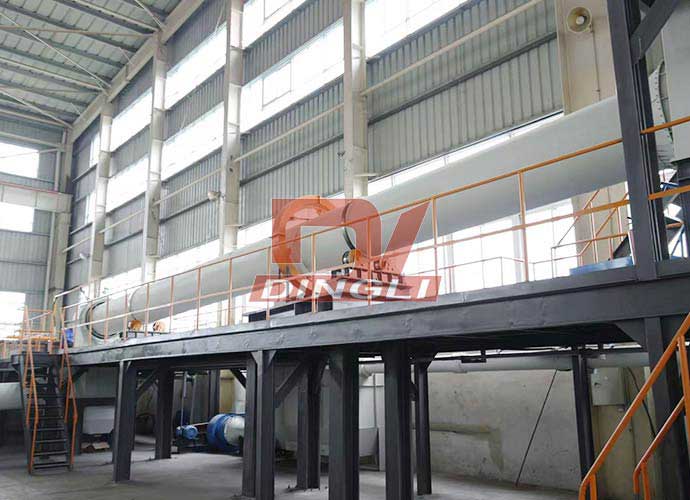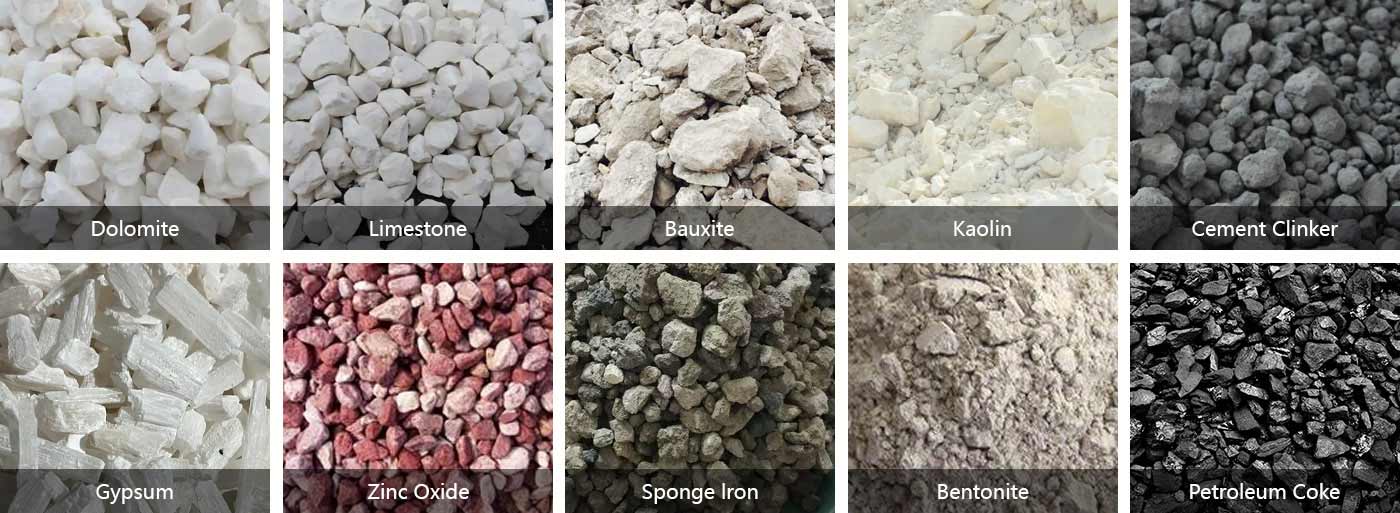 dinglimachine01@gmail.com
+86 16638159081(Wechat/WhatsApp)
dinglimachine01@gmail.com
+86 16638159081(Wechat/WhatsApp)
A rotary kiln refers to a rotating calcining kiln (commonly known as a rotary kiln), which belongs to the category of building materials equipment. Rotary kilns can be divided into cement kilns, metallurgical chemical kilns and lime kilns according to the different materials they process. Cement kilns are mainly used to calcine cement clinker, and are divided into two categories: dry-process cement kilns and wet-process cement kilns. Metallurgical chemical kilns are mainly used in the metallurgical industry for magnetization roasting of lean iron ore in steel plants; oxidation roasting of chromium and nickel iron ores; roasting of high-alumina vanadium ore in refractory plants and roasting of clinker and aluminum hydroxide in aluminum plants; and roasting of chromium ore sand and chromium ore powder and other minerals in chemical plants. Lime kilns (i.e., active lime kilns) are used to roast active lime and light-burned dolomite for use in steel plants and ferroalloy plants.



Materials produced by rotary kilns include: cement, lime, refractories, metakaolin, titanium dioxide, alumina, vermiculite, iron ore pellets. Rotary kilns are also used to roast various sulfide ores prior to metal extraction.

A rotary kiln is a high-temperature calcining equipment that heats the material to a high temperature (calcination) by rotating the cylinder in an inclined state. Rotary kilns can be divided into cement kilns, metallurgical chemical kilns and lime kilns according to the different materials they process.
| Equipment | Diameter(m) | Length(m) | Slope(%) | Output(t/d) | Speed (r/min) | Power(kw) | Total Weight (kg) |
| Φ2.5×40 | 2.5 | 40 | 3.5 | 180 | 0.44-2.44 | 55 | 149.61 |
| Φ2.5×50 | 2.5 | 50 | 3 | 200 | 0.62-1.86 | 55 | 187.37 |
| Φ2.5×54 | 2.5 | 54 | 3.5 | 280 | 0.48-1.45 | 55 | 196.29 |
| Φ2.7×42 | 2.7 | 42 | 3.5 | 320 | 0.10-1.52 | 55 | 198.5 |
| Φ2.8×44 | 2.8 | 44 | 3.5 | 450 | 0.437-2.18 | 55 | 201.58 |
| Φ3.0×45 | 3 | 45 | 3.5 | 500 | 0.5-2.47 | 75 | 201.94 |
| Φ3.0×48 | 3 | 48 | 3.5 | 700 | 0.6-3.48 | 100 | 237 |
| Φ3.0×60 | 3 | 60 | 4 | 800 | 0.3-2 | 100 | 310 |
*The output will vary according to different materials, feed particle size and other factors
Process Principle
1. High Temperature / Cleanness: Our special kiln core drum restrains oxidation and abrasion under high temperature conditions.This maintains a clean atmosphere and prevents product contamination.
2. Special atmosphere gases: Original sealing system keeps kiln airtight, allowing for heating by special atmosphere gases possible.
3. High temperature control accuracy: Original temperature measuring system makes measuring actual temperatures of materials possible, resulting in highly accurate temperature control.
Professional R & D design team, 300+ patent certificates.
The technical team customizes project solutions for customers.
Provide equipment installation and commissioning services.
The professional after-sales team is always at your service.